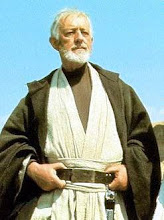We are now getting into one of my favorite chapters of the Book of Mormon. Nephi sees many things of our day and the history of the United States and America.
The chapter begins with Nephi seeing many nations and kingdoms or the lands of the Gentiles. Since what comes forth in the next few verses pertains the these Gentiles, it was helpful for me to know who exactly were the people called the Gentiles in the scriptures.
This is from the Book of Mormon Institute Manual:
"Elder Bruce R. McConkie said: 'Various meanings have been attached to the name Gentiles in different ages, depending on the historical setting or the doctrinal teachings involved. Literally the meaning is, 'of the same clan or race,' and Biblical revisions frequently substitute the word nations in its place. 'The descendants of Noah’s son Japheth were called Gentiles (Gen. 10:1–5), and in this sense the descendants of Shem . . . and of Ham . . . would not be Gentiles. In the days of Abraham, the term was used to refer to those nations and peoples who had not descended from him, with the added assurance that all Gentiles who should receive the gospel would be adopted into the lineage of Abraham and be accounted his seed. (Abra. 2:9–11.) The Prophet [Joseph Smith] taught that those so adopted became literally of the blood of Abraham.' (Teachings, pp. 149–150.) In the days of ancient Israel, those not of the lineage of Jacob were considered to be Gentiles, although the Arabs and other races of Semitic origin who traced their lineage back to Abraham would not have been Gentiles in the strict Abrahamic use of the word. 'After the Kingdom of Israel was destroyed and the Ten Tribes were led away into Assyrian captivity, those of the Kingdom of Judah called themselves Jews and designated all others as Gentiles. It is this concept that would have been taught to Lehi, Mulek and the other Jews who came to the Western Hemisphere to found the great Nephite and Lamanite civilizations. It is not surprising, therefore, to find the Book of Mormon repeatedly speaking of Jew and Gentile as though this phrase marked a division between all men; to find the United States described as a Gentile Nation (1 Ne. 13; 3 Ne. 21); and to find the promise that the Book of Mormon would come forth 'by way of the Gentile.' (Title page of Book of Mormon; D. & C. 20:9.)' (Mormon Doctrine, pp. 310–11)."
I think that the Gentiles referred to in this part are Europeans perhaps even down to those from the Middle East. We shall see why here soon.
Subscribe to:
Post Comments (Atom)

No comments:
Post a Comment